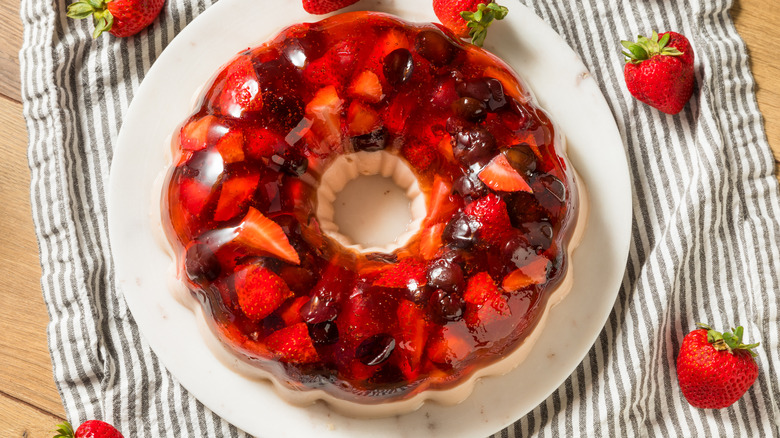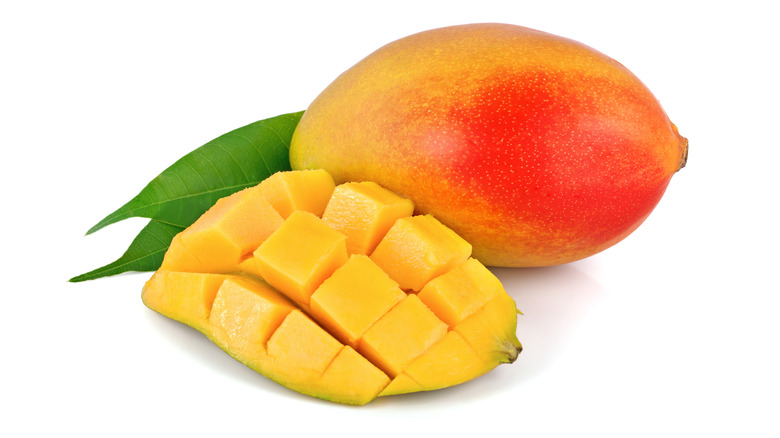The Fruits You Shouldn't Add Into Gelatin
While we might not consider pieces of fruit suspended in gelatin haute cuisine, there's no denying the texture of Jell-O and jiggly delights made with gelatin are just plain fun. Gelatin can be bought in one of two forms, either powdered or in sheets, and it's typically used to make a liquid mixture set into an amorphous solid, according to BCA Chemistry, a structure that's part liquid, part solid.
The way gelatin works is fascinating. When heated in water, the loose bonds that hold the collagen proteins together dissolve, and the entire mixture becomes a liquid. As the gelatin-water mixture cools, those collagen proteins bind together again in what Scientific American calls a "tangled mesh that traps water and other ingredients." If you were to heat gelatin after it's set, it would dissolve once again into a liquid as those collagen protein bonds release. Making jiggly desserts is a fun way to get plenty of fruit into kids' diets, but some fruits can foil your gelatin plans.
What fruits shouldn't you add to gelatin?
Some fruits contain enzymes called proteases, Scientific American explains, and the function of these enzymes helps certain chemical reactions occur. Science Notes points out the problematic chemical reaction when fruit containing proteases is introduced into gelatin: those collagen proteins you expect to bond as the gelatin sets? The proteases break those bonds, so the strands aren't long enough to form the mesh you need to turn your gelatin solution into an amorphous solid.
Fruits that contain proteases include figs, pineapple, pawpaw, mango, ginger root, guava, kiwi, and papaya, according to these two sources. If you add any of those raw fruits to gelatin, it simply won't set. However, if you cook the fruits first or use canned pineapple, the proteases will break down, and your gelatin will be appropriately jiggly. A gelatin recipe shouldn't include any of these raw fruits in a gelatin dessert, but remember that these (primarily tropical) fruits will do you no favors if you're out of apples or strawberries and looking for a quick substitute. We can assure you that the science is solid, and swapping in these fruits will only leave you with a watery mess.

